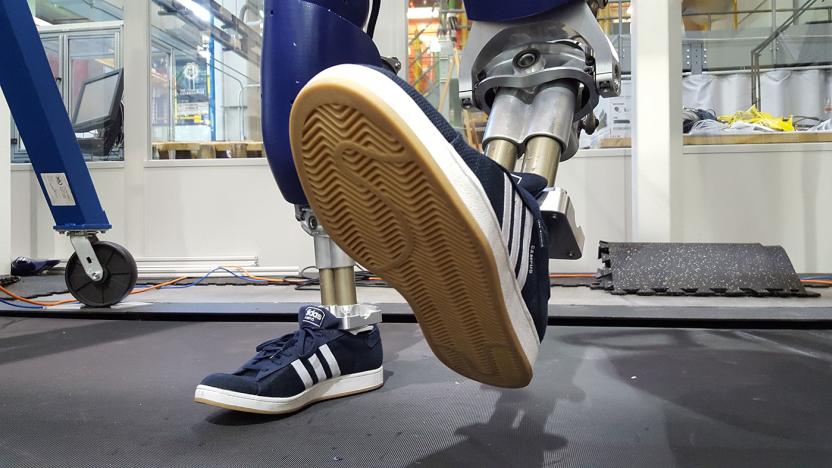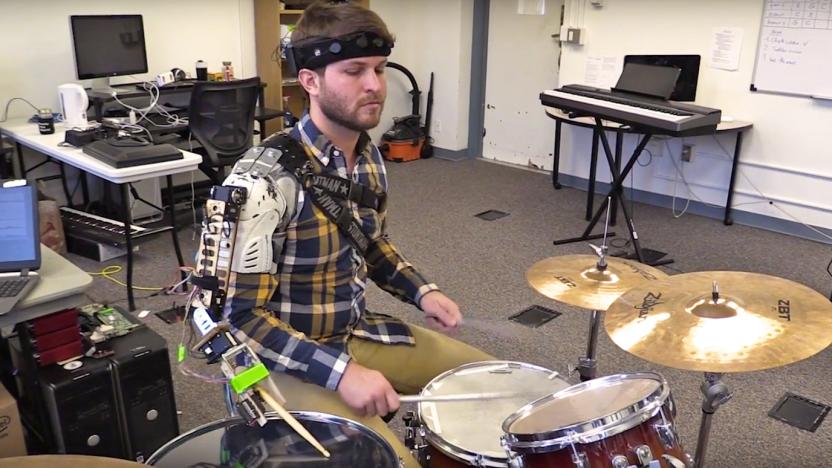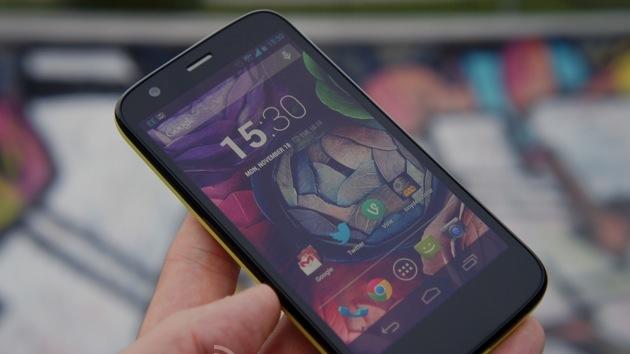gatech
Latest

Georgia Tech's DURUS robot has a more natural human-like stride
Last time we saw the DURUS robot walking like a human, it was still doing so relatively flat footed. The folks at Georgia Tech's AMBER-Lab have improved the robot's movements to incorporate even more human-like heel strikes and push-offs. As you can see in the video below, the new range of motion gives DURUS a more natural stride, and the ability to wear some sweet sneakers. Until about a week ago, the robot shuffled along flat footed before getting a pair of new metal feet with arches soles. After some tweaking of the algorithms and a few falls, DURUS now strides like the rest of us.

Robotic arm gives drummers an extra hand to thrash with
Let's face it: most of us will never be great drummers. Despite our stellar air drumming skills, it's just not going to happen -- no matter much we listen to Neil Peart. Researchers at Georgia Tech developed a robotic arm that gives drummers an extra arm to help boost those skills. The project from the university's Center for Music Technology aims to push the limits of what humans can do with a hand, er, arm from smart robotics. In this case, the device attaches to a drummer's shoulder and reacts to changes in tempo and movement. If the musician moves to the high-hat, the arm knows to switch to the ride cymbal, for example.

Researchers teach smartphones to recognize your activity, lock out everyone else
Swipe patterns, passwords and fingerprint scanners are useful for keeping that mobile device locked down from the outside, but what happens once that code is cracked? Well, cybersecurity researchers at Georgia Tech have developed LatentGesture that continuously monitors gadgets for intruders based on taps and swipes. If the system detects any use patterns that vary from the observed user profiles, it locks the device down. "The system learns a person's 'touch signature,' then constantly compares it to how the current user is interacting with the device," said College of Computing assistant professor Polo Chau.

Tegra might power Zune HD, definitely does augmented zombie reality
Ready for a double dose of Tegra newsbits? We've been wondering what's packed in the Zune HD for some time now, but apparently PC Perspective has had the answer since Computex and didn't realize the newsworthiness until now. According to the article, NVIDIA staffers told the site that its uber-powerful Tegra processor will be the heart and soul of Microsoft's revised PMP. There's been no official word from anyone, and for all we know it might've been some (possibly misinformed) employee mouthing off for kicks. If true, however, it'd be one helluva 'screw you' from Microsoft to Windows Mobile fans, who've been waiting over a year at this point to see some retail hardware running on NVIDIA's mobile platform. We've put in calls to both companies for some sort of statement, but we're not getting our hopes up. In other news, a group of researchers from Georgia Tech and Savannah College of Art and Design are showing off some of CPU's impressive potential with an augmented reality game ARhrrrr. Using a Tegra-powered mobile dev kit, the game projects a 3D town based on a two-dimensional diagram where you tap the screen to shoot zombies, or lay Skittles in real life to serve as virtual bombs. We've seen similar implementations before, but we're admittedly quite infatuated with this one, and as a bonus, there's video of the demo after the break. Read - Zune HD uses NVIDIA Tegra processor Read - Augmented Environments Lab: ARhrrrr!
